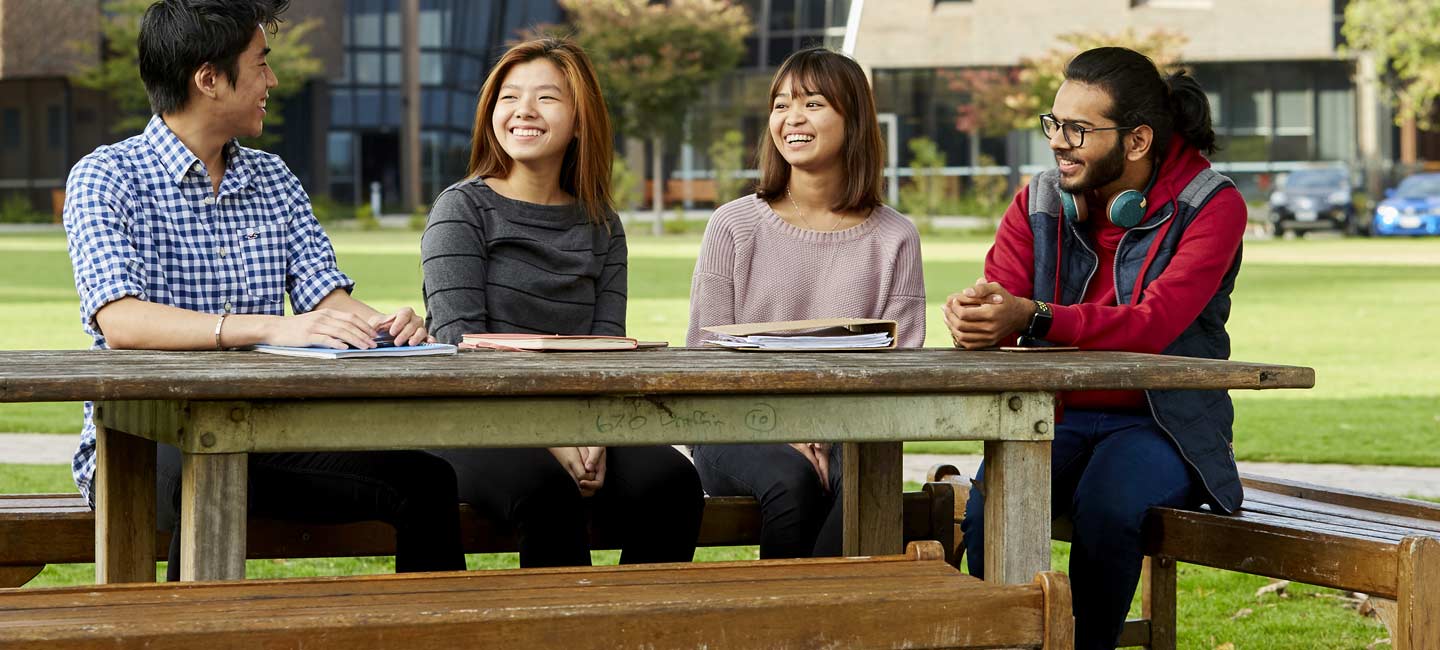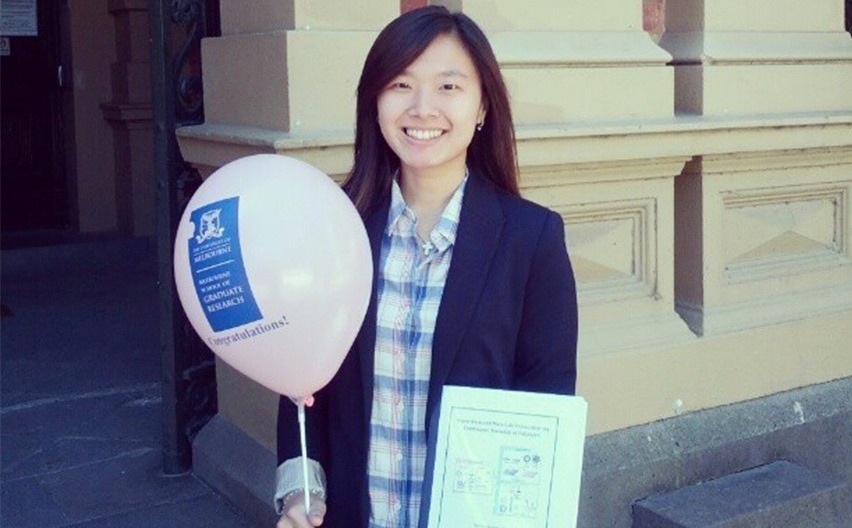


Polymer science. It’s not something many people think about. For most of us, the plastics, drugs and coatings that permeate our daily lives are just ‘there’ and we don’t give a second thought to the intricacies involved in their development.
But for people like Stefanie, creating and improving these common yet complex materials was just a regular day on the job.
Stefanie – a Foundation Studies alum – plunged headfirst into a PhD in 2009 after being approached by two professors who had been impressed by Stefanie’s work as a chemical and biomolecular engineering student at the University of Melbourne. They wanted Stefanie on their team.
With a scholarship to sweeten the deal, Stefanie joined the Polymer Science Group at the University of Melbourne. She found the world of polymers fascinating due to its widespread application in fields such as plastics, electronics and even pharmaceuticals. During her three-and-a-half-year research course, Stefanie discovered a novel approach to fabricating nanoscale films, and applied this in various ways, including the fabrication of waterproof coatings and engineered nanocoatings for different biomedical applications.
While this discovery was immensely satisfying, Stefanie is quick to point out that the whole experience was a daily challenge, citing PhD research as frustrating and unpredictable at times. ‘The highly experimental nature of the work meant that there was no existing blueprint to follow. Some of my colleagues dropped out and found other jobs that were less stressful and allowed them to earn more,’ says Stefanie.
Hence, it’s a valid question as to why she didn’t do the same.
‘What kept me going is the fact that you never know how close you are to a breakthrough. That’s why I just kept doing my best and trying my hardest.’
Stefanie also credits her academic success to her supportive research fellows, as well as her year studying Trinity College Foundation Studies. First arriving in Melbourne fresh from undertaking Year 11 in her hometown of Jakarta, Stefanie joined the August Early Entry then February Main intake at Trinity.
‘Trinity served as the main platform for the preparation of my university life here in Melbourne,’ says Stefanie, recalling her adjustment to the vastly different Australian education system and local language. ‘It definitely improved my English by forcing me to speak the language. Learning it is different from actually using it in daily life,’ she says, sharing a relatable lament for all language learners.
Despite those initial challenges, Foundation Studies provided Stefanie with a strong network of supportive friends in a foreign country. Her August Early Entry intake went from a group of 12 strangers to a group with an unbreakable bond through their shared experiences. ‘Our EAP teacher yelled at us for not speaking English,’ laughs Nina, remembering the moments that she and her classmates slipped into old habits.
Even now, the group still regularly communicates through WhatsApp, and proving just how tight her cohort of friends became, two marriages were born out of the friendship group – Stefanie’s included. Stefanie married a fellow alum and now-dentist after meeting him at Trinity in 2003, and the two now have a son.
Stefanie is currently focused on raising her son but hopes to return to academia soon. And who knows what great research she might crack next time around.
By Jacqueline Darwis
